Many people have dreams of owning real estate and renting it out to others. It’s a great way to earn a passive income, but you may not want to become a property manager, learn about the different management roles, or tackle it yourself.
Therefore, you need a residential property management company to assist, and Kleinman Realty Co. is an excellent solution. We’ll discuss more about this topic to help you determine if it’s the best option for you.
What Is Residential Property Management?

Overall, residential property management means that someone else manages the building, grounds, and tenants on behalf of the property owner. The management company is the landowner’s representative and handles tenant relations and oversees property maintenance.
Types of properties included in residential property management can be multi- and single-family homes, townhouses, apartments, and condos.
Typically, residential property management involves managing everything from finding tenants and leasing, to administrative processes and financial management.
Why Is Residential Property Management Important?
Residential property management ensures that the rental property is profitable, which directly correlates with ensuring tenants pay rent on time and keep everything in good condition.
Property owners often hire professional managers when they don’t have the time or tools to oversee the property themselves.
A residential property management company is the “landlord-for-hire.” They help with leasing, attracting tenants, maintenance, and so much more.
Overall, they are the landlord when you can’t be there in person.
Differences Between Residential and Commercial Property Management Companies
Commercial property management focuses more on industrial-use options, such as shops, offices, and other businesses. Alternatively, residential property managers are in charge of areas where people live, including condos, rental homes, apartments, and more.
Similarities and Differences
Both residential and commercial property management involve maintenance, collecting rent, and similar tasks. However, there are different regulations and laws involved. Managers must know about those when managing properties that aren’t considered houses or apartment buildings.
What Responsibilities Does a Property Manager Have?
Property managers play a large role in ensuring the seamless operation of rental properties. They act as the primary point of contact for tenants, managing vendors and property maintenance, marketing the property to potential renters, and much more.

They are the ones who make sure everything runs smoothly day-to-day when the property owners aren’t there, or want more of a hands-off approach. A property management company’s duties typically include:
Marketing a Property
Marketing investment properties effectively is key to attracting new tenants. This means working with industry professionals who can handle online and print advertising, take great photos and videos, and manage social media to showcase your property. These efforts help your property stand out in a competitive market and get noticed by the right tenants.
Collecting Rent for a Property
Owners often hire professional management companies to collect rent, and ensure timely and accurate deposits into their accounts. These companies often have streamlined processes that make rent payments easier for the tenants, and allow for quicker remediation of any issues related to late or missed payments. This eliminates the stress and effort of property owners managing the collections themselves.
Screening Tenants for the Property
The management team will handle the entire leasing process, from the rental application to the end of the tenancy. By thoroughly screening tenants for financial stability, credit history, background checks, and rental history, the team ensures that only reliable and qualified tenants are selected.
Financial Reporting
Typically, residential property management involves financial reporting to ensure accurate tracking of taxes, payments, and expenses. This covers everything from rental income and capital improvement costs to insurance, maintenance expenses, and other property-related transactions. The management company provides regular financial statements, helping property owners stay informed and proactive in managing their investments.
Conducting Inspections
Community managers ensure real estate properties meet safety and living standards before tenants move in. This includes conducting property inspections to identify necessary repairs and managing required city inspections to ensure compliance with local codes and regulations.
Maintenance of Properties
Overall, property managers oversee all aspects of property maintenance, ensuring the property stays in excellent condition and that issues are addressed promptly. This includes hiring and supervising skilled professionals for tasks such as routine maintenance, emergency repairs, landscaping, cleaning, and more.
Skills Needed to Manage Rental Properties
Property management is an intricate industry. Management companies must possess many skills, such as:
- Strong Communication Skills
- Financial Management
- Patience and Adaptability
- Assertiveness
- Marketing and Leasing
- Customer Service
- Organizational
- Knowledge of Local Laws and Regulations
Why Choose Kleinman Realty Co.
Most property owners want to benefit from a passive income without the extra work. Therefore, hiring someone to handle property management is the best solution. We offer value by handling all aspects of the job that our clients may not have time for. Contact us to learn how we can help you maximize your investment!
